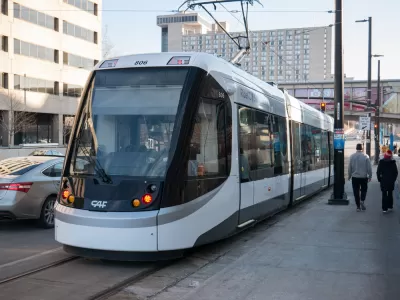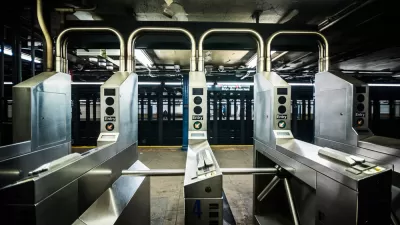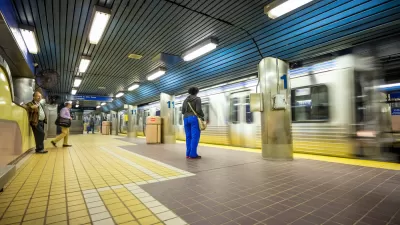For the Missouri city, the economic and social benefits of eliminating transit fares outweigh the costs, but can their success be replicated in bigger cities more dependent on farebox revenue?

After reintroducing a historic streetcar in 2016, Kansas City transit eventually went completely fare-free in 2020. In Governing, Jared Brey assesses what other cities can learn from KC’s experiment, and what unique conditions make the city unlike others.
Prior to eliminating fares, Kansas City’s transit system brought in relatively low ridership revenue. This, combined with the cost savings of eliminating fare collection, made it an easy decision to get rid of fares altogether.
On the other hand, few Kansas City residents can benefit from public transit. “Less than 13 percent of Kansas City’s low-income households live near a bus route, according to one report. And only 3 percent of Kansas City residents use public transit at all, according to another.”
Ultimately, “While Kansas City is the biggest city to go fare-free, its transit system is still comparatively small, and eliminating fare collection didn’t come at a very great cost.” Transit advocates point out that the frequency and reliability of service remains the most important need for transit riders.
FULL STORY: What Can Cities Learn from Kansas City’s Fare-Free Transit Program?

Planetizen Federal Action Tracker
A weekly monitor of how Trump’s orders and actions are impacting planners and planning in America.

Congressman Proposes Bill to Rename DC Metro “Trump Train”
The Make Autorail Great Again Act would withhold federal funding to the system until the Washington Metropolitan Area Transit Authority (WMATA), rebrands as the Washington Metropolitan Authority for Greater Access (WMAGA).

The Simple Legislative Tool Transforming Vacant Downtowns
In California, Michigan and Georgia, an easy win is bringing dollars — and delight — back to city centers.

The States Losing Rural Delivery Rooms at an Alarming Pace
In some states, as few as 9% of rural hospitals still deliver babies. As a result, rising pre-term births, no adequate pre-term care and "harrowing" close calls are a growing reality.

The Small South Asian Republic Going all in on EVs
Thanks to one simple policy change less than five years ago, 65% of new cars in this Himalayan country are now electric.

DC Backpedals on Bike Lane Protection, Swaps Barriers for Paint
Citing aesthetic concerns, the city is removing the concrete barriers and flexposts that once separated Arizona Avenue cyclists from motor vehicles.
Urban Design for Planners 1: Software Tools
This six-course series explores essential urban design concepts using open source software and equips planners with the tools they need to participate fully in the urban design process.
Planning for Universal Design
Learn the tools for implementing Universal Design in planning regulations.
Smith Gee Studio
City of Charlotte
City of Camden Redevelopment Agency
City of Astoria
Transportation Research & Education Center (TREC) at Portland State University
US High Speed Rail Association
City of Camden Redevelopment Agency
Municipality of Princeton (NJ)





























